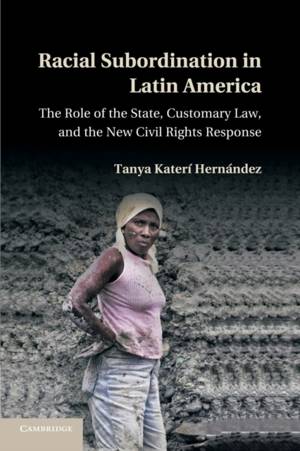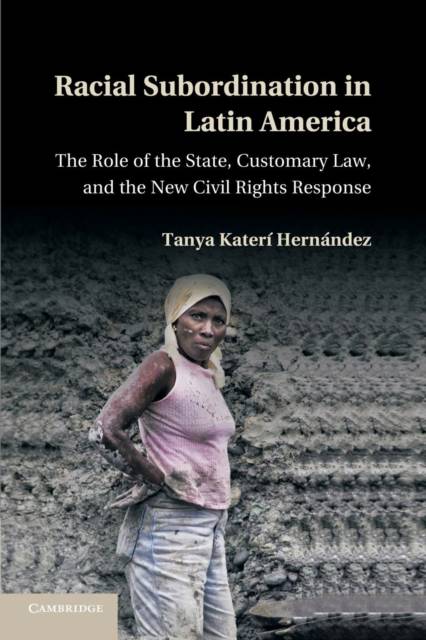
- Afhalen na 1 uur in een winkel met voorraad
- Gratis thuislevering in België vanaf € 30
- Ruim aanbod met 7 miljoen producten
- Afhalen na 1 uur in een winkel met voorraad
- Gratis thuislevering in België vanaf € 30
- Ruim aanbod met 7 miljoen producten
Racial Subordination in Latin America
The Role of the State, Customary Law, and the New Civil Rights Response
Tanya Katerí Hernández
Paperback | Engels
€ 64,95
+ 129 punten
Uitvoering
Omschrijving
There are approximately 150 million people of African descent in Latin America yet Afro-descendants have been consistently marginalized as undesirable elements of the society. Latin America has nevertheless long prided itself on its absence of U.S.-styled state-mandated Jim Crow racial segregation laws. This book disrupts the traditional narrative of Latin America's legally benign racial past by comprehensively examining the existence of customary laws of racial regulation and the historic complicity of Latin American states in erecting and sustaining racial hierarchies. Tanya Katerí Hernández is the first author to consider the salience of the customary law of race regulation for the contemporary development of racial equality laws across the region. Therefore, the book has a particular relevance for the contemporary U.S. racial context in which Jim Crow laws have long been abolished and a "post-racial" rhetoric undermines the commitment to racial equality laws and policies amidst a backdrop of continued inequality.
Specificaties
Betrokkenen
- Auteur(s):
- Uitgeverij:
Inhoud
- Aantal bladzijden:
- 258
- Taal:
- Engels
Eigenschappen
- Productcode (EAN):
- 9781107695436
- Verschijningsdatum:
- 30/01/2014
- Uitvoering:
- Paperback
- Formaat:
- Trade paperback (VS)
- Afmetingen:
- 152 mm x 229 mm
- Gewicht:
- 349 g

Alleen bij Standaard Boekhandel
+ 129 punten op je klantenkaart van Standaard Boekhandel
Beoordelingen
We publiceren alleen reviews die voldoen aan de voorwaarden voor reviews. Bekijk onze voorwaarden voor reviews.










